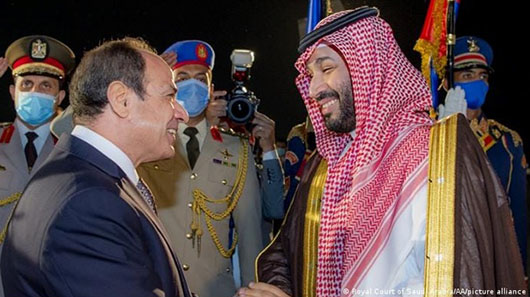FPI / July 20, 2022
By Steve Rodan, China in the Middle East
Mohammed Bin Salman is young, brash and ruthless. What sets him apart from his Saudi colleagues is that he is the de facto ruler of the biggest crude oil exporter in the world. After years of stagnation, the Gulf Arab kingdom, with the fastest economic growth in a decade, is awash with money.

Bin Salman is the new face of Saudi Arabia. After decades of being led by doddering old men, including his father, Bin Salman, or MBS as he is known, has revitalized Saudi domestic and foreign policy. The kingdom is a far cry from a democracy: But the crown prince has undertaken reforms long urged by Western-influenced Saudis. For the first time in Saudi history, the official clergy has been restrained. Princes who long enjoyed huge allowances and business monopolies have been neutralized.
As important, MBS has moved Saudi Arabia out of the orbit of the United States. The pro-U.S. princes, particularly his cousin, Nayef, the former interior minister, have been locked up, their bank accounts confiscated. The crown prince has moved toward China and Russia, with no qualms about giving him anything from ballistic missiles to nuclear technology.
MBS sees the United States as a fading superpower. He mocks President Joe Biden as a demented old man totally dependent on his advisers. During their meeting on July 15, MBS told Biden that he was a hypocrite for raising the issue of Jamal Khashoggi while ignoring the killing of Al Jazeera correspondent Shireen Abu Akleh, her death blamed on Israel.
During his visit to the kingdom, Biden, who had pledged to reassess U.S. ties with Riyad, was clearly the supplicant. Ahead of the OPEC meeting on Aug. 3, he asked MBS to increase Saudi oil exports to help reduce the price of gasoline, the key issue in the U.S. mid-term elections for Congress in November. The president promised his adversary everything from missile defense and aerospace technology to extending visas for Saudis.
“He’s [Biden] intent on ensuring that there is not a vacuum in the Middle East for China and Russia to fill,” U.S. National Security Adviser Jake Sullivan said on July 15.
To understand MBS is to look at his biography. He is one of the few princes with an education. His real studies, however, came through his father — as he rose from defense minister to crown prince and finally king in 2015. MBS continually pushed his cautious father to take the initiative — from streamlining the huge bureaucracy to launching the war in Yemen, the first foreign military campaign since 1991.
At the same time, MBS was struck by his father’s refusal to confront the hated Saudi religious police. For more than 35 years, the religious police were accountable to no one. They harassed and frequently arrested men for walking with their wives, raided homes and beat passersby for being late to mosque.
The second target of Saudi hate was the more than 6,000 princes. Many of the royals did virtually nothing except travel, gamble and frequent whorehouses in Europe and Asia. Their allowances continued even through the hardest times in the kingdom because their loyalty was paramount at a time of increasing unrest.
But the biggest lesson learned by MBS was about America. For decades, Saudi Arabia was the gasoline pump of the the United States. In return, Saudi Arabia was given vast amounts of overpriced weapons that didn’t work, fighter-jets without pilots, main battle tanks with antiquated systems. American trainers treated Saudi officers as dumb, lazy and useless.
Full Text . . . . Current Edition . . . . Subscription Information
FPI, Free Press International
